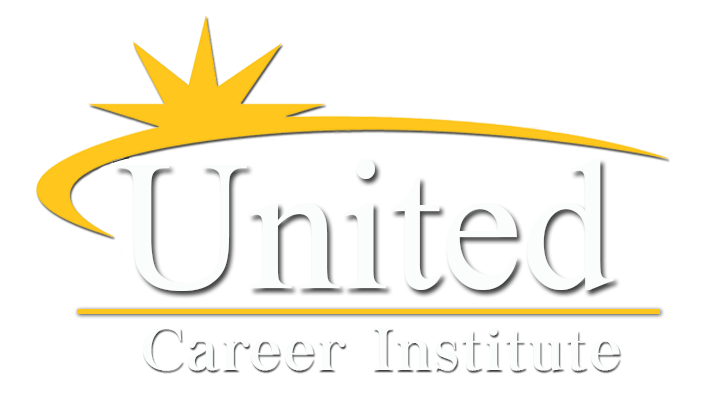(Subject to Change without Notification)
COMPUTER USE
To protect students’ access to functioning computers and to protect computer hardware, software, networks and the proprietary rights of the School and third parties in commercial software, all students must assume the following responsibilities of legal and ethical computer and network use. Depending on the severity of any violation of this policy, consequences may include a written or oral reprimand, loss of computer use privileges, expulsion from this School and/or referral to the appropriate legal authorities.
- Any currently enrolled student or a graduate in good standing may use the computer labs and resource center computer facilities. Guests are not permitted in the computer lab or resource center. These resources are to be used only for school or job-search related activities such as research, homework assignments and resume preparation.
- Students are prohibited from using Internet resources or network facilities for solely personal pursuits such as electronic mail, downloading or viewing pornographic websites, chat rooms, games, for the purposes of sending, receiving or storing chain mail, advertising or fraudulent materials, or using the network for commercial or for-profit activity. Students are also prohibited from annoying other users by such means as broadcasting unsolicited messages, sending harassing, obscene or offensive messages.
- The computer labs for authorized purposes only whenever the School is open and classes are not in session in the lab(s). The resource center may be used anytime that the institution is open. The School reserves the right to close the labs or resource center when necessary for maintenance, etc. without prior notice.
- Food or drinks may not be brought into the computer lab(s) or the resource center. NO EXCEPTIONS.
- Changing any settings, or running any diagnostics or utility programs on any computer or network without specific instruction by a faculty member or administrator is strictly prohibited. “Settings” include, but are not limited to, video display settings, mouse settings, wallpaper, screen savers, printer specifications, network settings or protocols, etc.
- Installing software on any computer equipment without explicit permission from the appropriate authority is strictly prohibited. This includes, but is not limited to, freeware, shareware, public-domain or commercial software. “Downloading” software from the Internet to any computer is also strictly prohibited.
- To safeguard the computers and networks against viruses and damage, students are required to follow these guidelines with respect to discs:
- Purchase only new, sealed discs for use in the classroom. Label them with your name.
- The user is responsible for backing-up and monitoring the quality of his/her discs. Damaged or worn-out discs can damage disc drives.
- Every student in good standing will be assigned an account on the School’s computer network. Sharing accounts is prohibited. Students will be held accountable for all activity occurring on their account; therefore, all passwords and accounts must be kept confidential. Use these account access safety measures:
- Choose hard-to-guess passwords; i.e., short word phrases such as “learn2learn” (not common names). Students are responsible for remembering their own password. Administration will NOT know what it is.
- Never leave computer unattended without logging off. Always log off at the end of class.
- Never give passwords to someone else or allow others to use your account.
- Use shared resources considerately. Don’t monopolize systems, overload networks with excessive data, or waste computer time, disc space, paper or other resources. Any student files stored on computer hard drives are not secure and may be deleted or accessed by others. Therefore, it is recommended that students save all work to a disc. Leave the work area clean and in order for the next class when finished.
- All computer and electronic files and discs belong to somebody. Assume them to be private and confidential unless the owner has given explicit permission to make them available to others. If in doubt, ask first.
- Staff, faculty, and students are prohibited from copying commercial software on or off campus (except as specifically permitted by the software’s author or manufacturer) or engaging in other activities that may violate a copyright, patent, or trademark. (Check with the President or read the appropriate license agreement, if you have any questions.)
- Students are prohibited from accessing data or programs for any reason without the owner’s explicit permission. Do not create, modify, execute or re-transmit any computer program or instructions intended to gain unauthorized access to, or make unauthorized use of, any computer facilities or software.
- Students are prohibited from using computers or networks with the intent to compromise other computers or networks, to commit crimes or other unethical acts. The School will take necessary steps to preserve the security of its computer resources.
- Students will be billed for the cost of any damage to computer hardware or the cost of reconfiguration of any software, or for any other costs incurred by the institution as a result of a violation of these rules.
- Report any violation of system access or policies to Faculty or Administration.
FILE SHARING
A recent amendment to the Higher Education Act of 1965 requires Schools to have a plan to combat the illegal downloading of music, videos and other copyrighted works (otherwise known as Peer to Peer File Sharing, or P2P) on School campus networks. The institution takes this responsibility seriously. Campus computers will be monitored closely to address copyright violations related to illegal downloads. Each computer user at the School should understand what material is illegal or legal and what sites are authorized distributors of copyrighted material. For example, popular sites such as iTunes, Rhapsody, Amazon, etc. have downloads available for a fee. Any unauthorized or illegal downloads or unauthorized file sharing by any member of the campus community will be subject to sanctions by the School up to dismissal from school or termination of employment. Individuals would also be subject to Federal criminal offenses for copyright law violations. For a full list of these offenses, visit: https://www.copyright.gov/title17/
